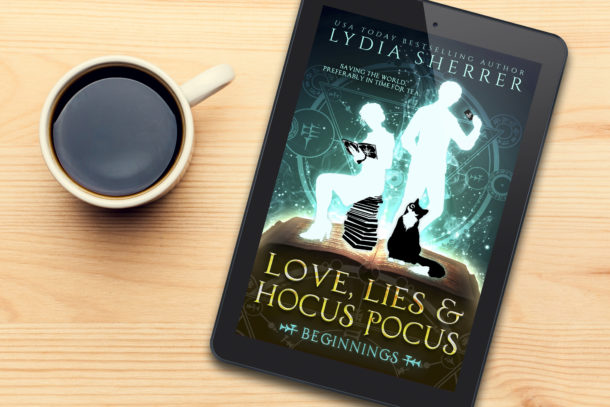Ok, this week is going to be a short one, mainly because I’m trying to get taxes done and wedding stuff is starting to come to a head. See my previous post about wedding stresses :).
Becoming-a-Writer Tip # 3: Read read read and write write write
Seems a bit elementary, right? If its so elementary, then why don’t most aspiring writers do it? Well I can say at least in my case it’s because of time. We want to be great writers, but we don’t want, or feel we don’t have the time to devote to it. Yet how can you write great literature if you don’t read it? And how can you write great literature if you don’t practice writing it, A LOT?
But seriously, there are so many aspiring and wanna-be writers out there that you have to work HARD if you want to make anything of yourself. And to be really good, you have to read read read and write write write. Every day and all the time.
Don’t just take my word for it, Stephen King said in his book On Writing: A Memoir of the Craft: ““If you want to be a writer, you must do two things above all others: read a lot and write a lot.” (and by the way, you should now go seek out this craft writing book and read/listen to it, it will go a long way toward getting you started on your writing career).
Now I’ve been reading all my life. Its my favorite hobby and something I do all the time, every day. Now-a-days a lot of what I read isn’t fiction, its politics, news, blogs, and writing craft material. But, knowing that to write fiction I have to read fiction, I also make it a point to always be in the middle of a fiction book. And not just the fiction books that I think I’ll like for fluff entertainment. I have a reading list of classic literature and recommendations from writer friends that I work on.
If you’re worried about time, I suggest audiobooks. I have a long commute to my day job, and like to listen to books as I cook, exercise, do laundry, clean, etc. I get through a lot more fiction that way than if I stopped what I was doing to read. Now, it’s not quite the same, listening instead of seeing words on the page. It has it’s advantages and disadvantages. I think I get a better feel for the flow of storytelling by listening, but I get less experience in seeing correct sentence structure and the details of the craft.
You can now rent audiobooks from your local library, or if you prefer to purchase, Audible.com is a good company. You can get popular audiobooks for as little as 12-13 dollars apiece if you buy a bunch of “credits” at once (one credit per book).
Whichever way you do it, read read read. All the time. Keep a book in your car, a book in your purse, a book by your bedside. Keep audiobooks on your phone, computer, ipod, whatever. Read whenever you have the chance, and when you don’t have the chance, make some time for it. Here’s a short list of some of my favorite books that I think everybody should read at some point. This list is not exhaustive, but it’s somewhere to start:
The Lord of the Rings Trillogy (JRR Tolkein)The Hobbit (JRR Tolkein)
The Chronicles of Narnia, all 7 books (C.S. Lewis)
Harry Potter, all 7 books (JK Rowling)
Watership Down (Richard Adams)
The Last Unicorn (Peter S. Beagle)
The Maze in the Heart of the Castle (Dorothy Gilman)
1984 (George Orwell)
Ender’s Game (Orson Scott Card)
The Grapes of Wrath (John Steinbeck)
The Count of Monte Cristo (Alexandre Dumas)
Lord of the Flies (William Golding)
The Little Prince (Antoine de Saint Exupery)
The Oath (Frank Peretti)
Good Omens (Terry Pratchett and Neil Gaiman)
Neverwhere (Neil Gaiman)
The Hunger Games, trilogy (Suzanne Collins)
Trickster’s Choice and Trickster’s Queen (Tamora Pierce)
Icarus Hunt (Timothy Zahn)
The Mistborn Trilogy (Brandon Sanderson)
Prince Roger series, 4 books (David Weber and John Ringo)
The Girl Who Kicked the Hornet’s Nest, + 2 sequels (Stieg Larsson)
The Adventures of Sherlock Holmes (Sir Arthur Conan Doyle)
The Name of the Wind (Patrick Rothfuss)
This doesn’t even begin to scratch the surface of all the amazingly great books out there that you need to read, but these are all good ones, representing a wide range of genre, author, and time period written. They are also represent the authors/stories that have most influenced my tastes in stories and story-telling.
So this was just part A, talking about reading. To keep this post from rambling on I’ll address writing, part B, in my next post.
Check out my beginner Becoming-A-Writer Tips here:
#1: Take notes
#2: Know Your Market
#3 A: Read Read Read!
#3 B: Write Write Write!
My How to Advance Your Writing Career Series:
Part 2: Professional Development
Lastly, what are your favorite books? What books have you read that you found very well written, deeply moving, very informative, or very influencing on your writing? Please share with us. Thanks, and have a great week!


Recent Comments